When I decided to install butcher block countertops in my kitchen, I was drawn to their warm, natural aesthetic and the charm they bring to a cooking space. Butcher block countertops, made from thick, bonded strips of wood, provide a beautiful and functional workspace that complements a variety of kitchen styles, from rustic to modern. However, I quickly realized that caring for butcher block countertops requires a bit more attention and effort compared to other countertop materials. The journey to learning how to properly maintain and care for these countertops has been both rewarding and educational.
One of the first things I learned about caring for butcher block countertops is the importance of regular oiling. Unlike quartz or granite, wood is a porous material that can dry out and crack if not properly maintained. To keep the wood hydrated and looking its best, I apply food-grade mineral oil once a month. The process is straightforward but must be done diligently. I pour a generous amount of oil onto the surface and spread it evenly with a clean cloth, allowing the wood to absorb the oil overnight. This helps to protect the wood from moisture, stains, and wear.
In addition to regular oiling, I discovered that it’s crucial to clean butcher block countertops properly. For daily cleaning, I use a mixture of mild dish soap and warm water. I avoid harsh chemicals and abrasive cleaners, as they can damage the wood’s surface. After wiping down the countertops with soapy water, I rinse them with a clean, damp cloth and dry them thoroughly to prevent water from seeping into the wood. It’s important to never let water sit on the surface for extended periods, as this can cause the wood to swell and warp.
To tackle tougher stains and odors, I use natural cleaning solutions like vinegar and baking soda. For example, if I encounter a stubborn stain, I create a paste using baking soda and water, gently scrubbing it into the stain with a sponge. For lingering odors, a simple spray of diluted vinegar helps to neutralize smells without damaging the wood. These natural cleaning methods have proven effective and safe for maintaining the beauty and integrity of my butcher block countertops.

One of the biggest challenges with butcher block countertops is preventing and dealing with scratches. Despite my best efforts, scratches and nicks are inevitable, especially in a busy kitchen. To minimize damage, I always use cutting boards and avoid chopping directly on the countertops. However, when scratches do occur, I’ve learned that they can often be sanded out. Using fine-grit sandpaper, I gently sand the scratched area in the direction of the wood grain until the scratch is no longer visible. After sanding, I reapply mineral oil to restore the finish and protect the wood.
Water damage is another concern for butcher block countertops. To prevent water damage, I make sure to wipe up spills immediately and never leave wet items, like dishcloths or pots, on the surface. I’ve also placed silicone mats or trivets near the sink and stove areas to provide extra protection against moisture and heat. Additionally, I check the seams and edges regularly, applying additional oil or beeswax if I notice any drying or cracking.
Another aspect of caring for butcher block countertops is maintaining their natural color and avoiding discoloration. Over time, wood can darken or change color due to exposure to sunlight and various foods. To minimize discoloration, I use a cutting board for foods that can stain, such as beets or berries. If a stain does occur, I gently sand the affected area and treat it with a mixture of lemon juice and salt to lighten the stain before reapplying oil.
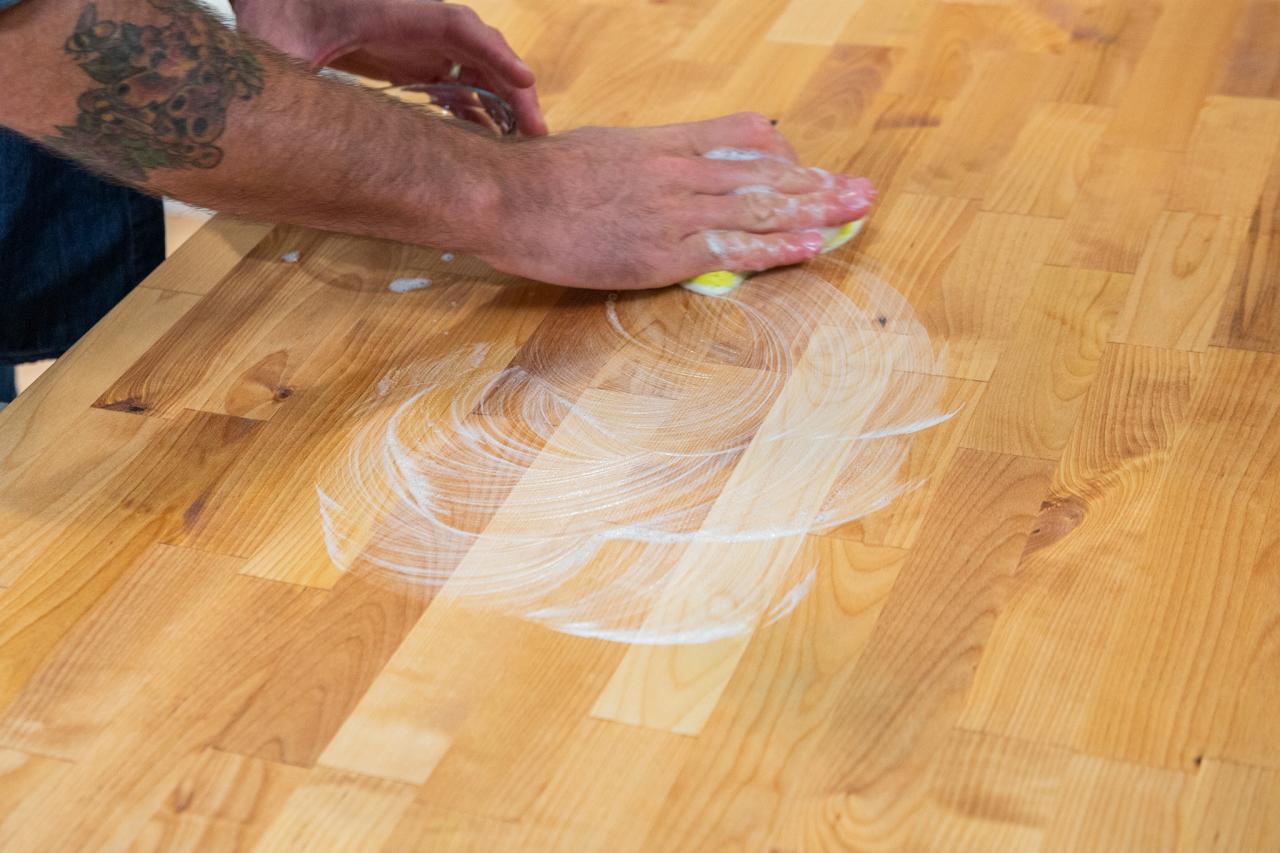
Preventing and addressing mold and mildew is also crucial. In a humid kitchen environment, wood can be susceptible to mold if not properly cared for. To prevent mold growth, I keep the countertops dry and ensure good ventilation in the kitchen. If I ever notice any signs of mold, I clean the area immediately with a mixture of vinegar and water, followed by thorough drying and oiling to protect the wood.
Regular maintenance also includes checking for and repairing any loose or damaged seams. Over time, the seams where the wood pieces are joined can become loose or separated. To fix this, I apply wood glue to the seam and clamp the pieces together until the glue dries. After the glue has set, I sand the area smooth and reapply oil to blend the repair with the rest of the countertop.
Another useful tip I discovered is the occasional use of beeswax to add an extra layer of protection. Beeswax can be applied after oiling to seal the wood and provide a water-resistant barrier. I melt a small amount of beeswax and rub it into the surface with a cloth, allowing it to harden before buffing it to a shine. This not only protects the wood but also gives the countertops a beautiful, polished finish.
Heat resistance is an important consideration for butcher block countertops. Wood is not as heat-resistant as stone, so I always use trivets or hot pads when placing hot pots and pans on the countertops. Direct exposure to high heat can scorch the wood, leaving unsightly burn marks. If a burn mark does occur, I gently sand the area and treat it with oil to restore the surface.
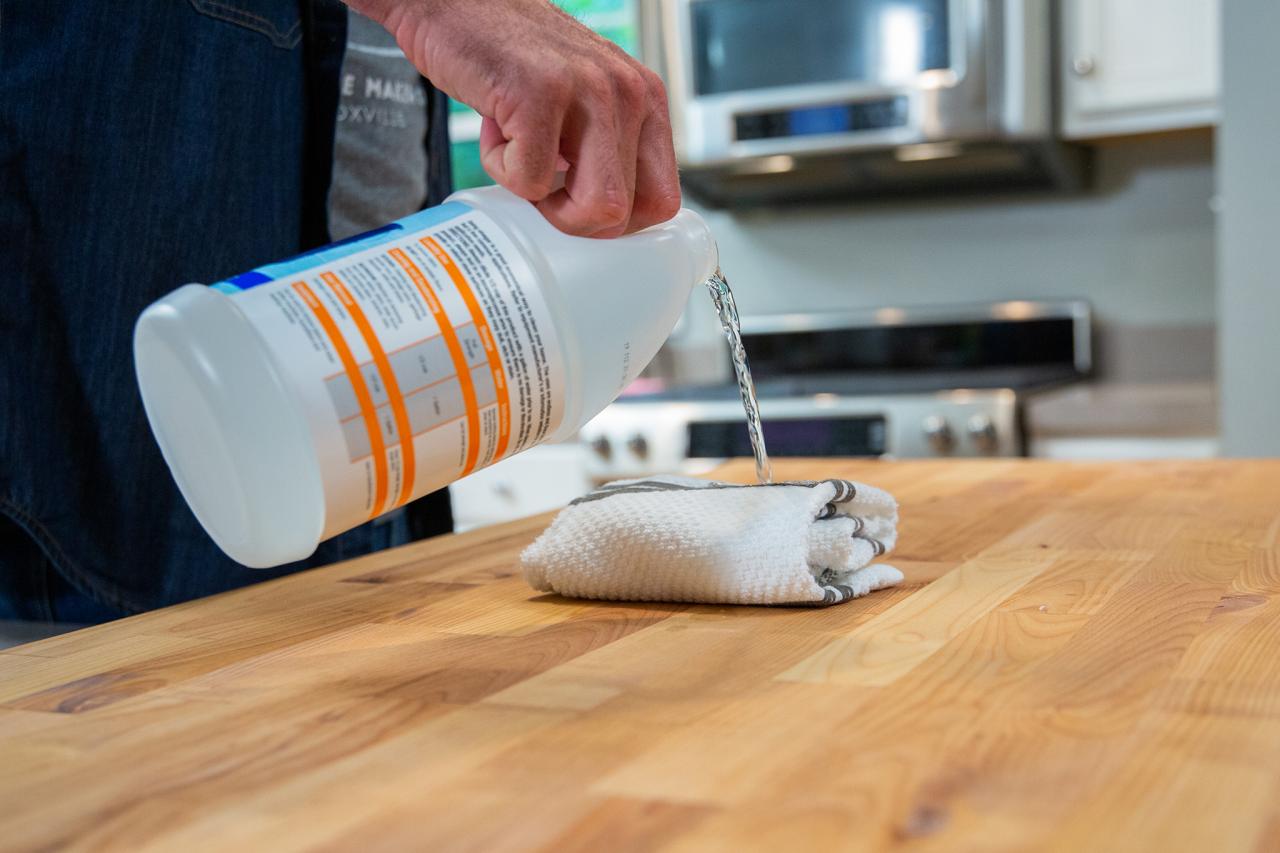
One of the pleasures of having butcher block countertops is their ability to develop a rich patina over time. While I enjoy the character that comes with age and use, I still strive to maintain their appearance by treating them with care and respect. This means avoiding harsh impacts, not using the countertops as a workbench, and regularly inspecting for any signs of wear or damage.
Educating my family about proper care has also been important. Ensuring that everyone in the household understands the dos and don’ts of butcher block countertop care helps to maintain their condition. Simple rules like using cutting boards, wiping up spills immediately, and not placing hot items directly on the wood go a long way in preserving the countertops’ beauty and functionality.
Caring for butcher block countertops requires a commitment to regular maintenance and mindful use. The natural beauty and warmth they bring to a kitchen make the extra effort worthwhile. By following a consistent routine of oiling, cleaning, and protecting the wood, I’ve been able to keep my butcher block countertops looking beautiful and performing well. The process has taught me the value of patience and attention to detail, resulting in a kitchen feature that I am proud of and enjoy every day.
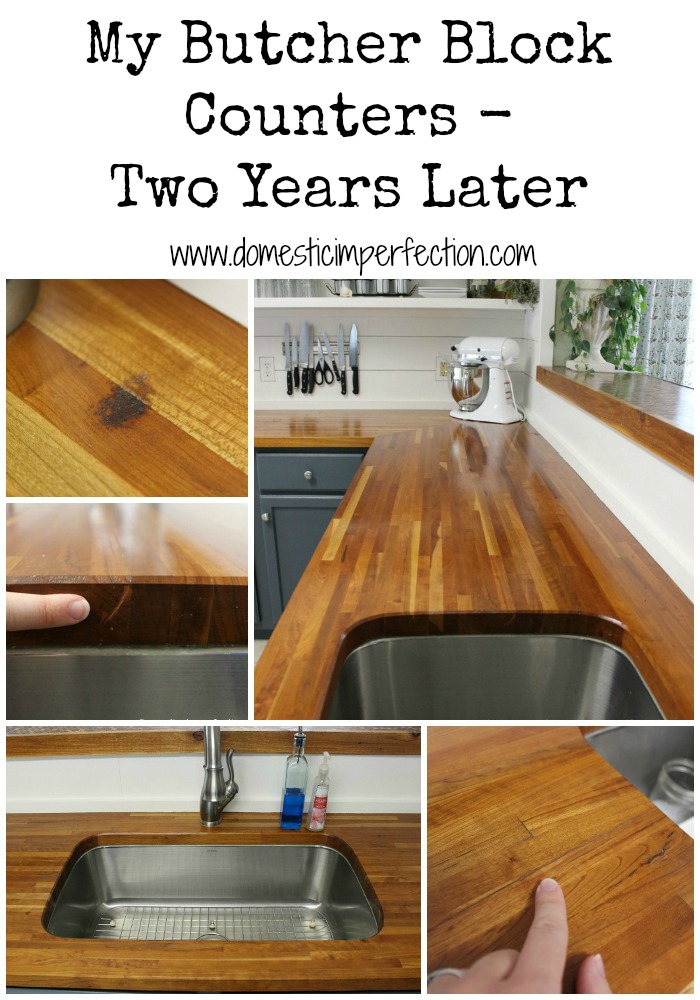
Common Mistakes to Avoid
Caring for butcher block countertops can be straightforward, but several common mistakes can undermine their longevity and appearance. One major mistake is neglecting regular oiling. Without frequent oiling, the wood can dry out, leading to cracks and splits. It’s essential to establish a routine of oiling at least once a month. Another mistake is using harsh chemicals for cleaning. These can strip the wood of its natural oils and damage the surface. Always opt for mild soap and water or natural cleaners like vinegar.
Allowing water to sit on the countertops is another error. Wood is highly susceptible to water damage, so spills should be wiped up immediately. Additionally, avoid placing wet items directly on the wood, as this can cause swelling and warping. Skipping the use of cutting boards is also a common mistake. Directly cutting on the butcher block can lead to deep scratches and gouges that are difficult to repair.
Improper sanding is another issue. When dealing with scratches or stains, sanding against the grain can cause more harm than good. Always sand with the grain and follow up with oiling to restore the finish. Finally, ignoring the need for regular inspection and maintenance of seams can lead to long-term damage. Loose seams should be glued and clamped promptly to maintain the integrity of the countertop.
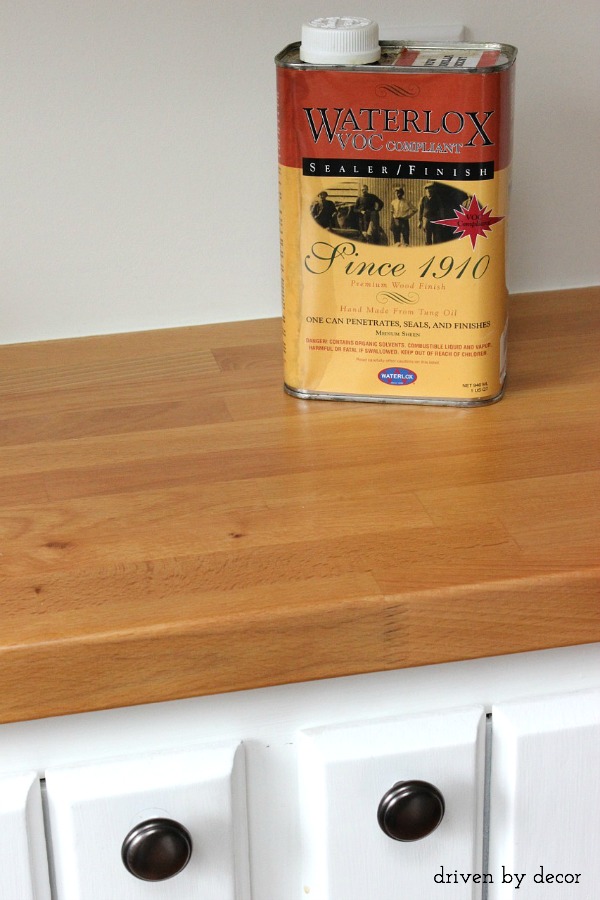
How often should I oil my butcher block countertops?
Regular oiling is crucial for maintaining butcher block countertops. I recommend oiling them once a month, but the frequency can vary depending on the usage and climate. In dry climates or during the winter months when indoor heating can dry out the air, you might need to oil more frequently. The key is to ensure the wood remains hydrated and protected. If the surface feels dry or looks dull, it’s time to reapply the oil.
What kind of oil should I use for my butcher block countertops?
Food-grade mineral oil is the best choice for butcher block countertops. It’s safe for food contact and does an excellent job of penetrating the wood to provide moisture and protection. Other suitable options include walnut oil or a blend of mineral oil and beeswax. Avoid using vegetable oils, as they can turn rancid over time and leave an unpleasant odor. Applying the oil generously and allowing it to soak in overnight yields the best results.
How do I remove stains from my butcher block countertops?
Removing stains from butcher block countertops involves gentle yet effective methods. For light stains, a mixture of baking soda and water can be applied as a paste and scrubbed gently with a sponge. For tougher stains, sanding the area with fine-grit sandpaper can help. Always sand with the grain of the wood to avoid further damage. After sanding, clean the area and apply mineral oil to restore the finish. For odors, a spray of diluted vinegar can neutralize smells.
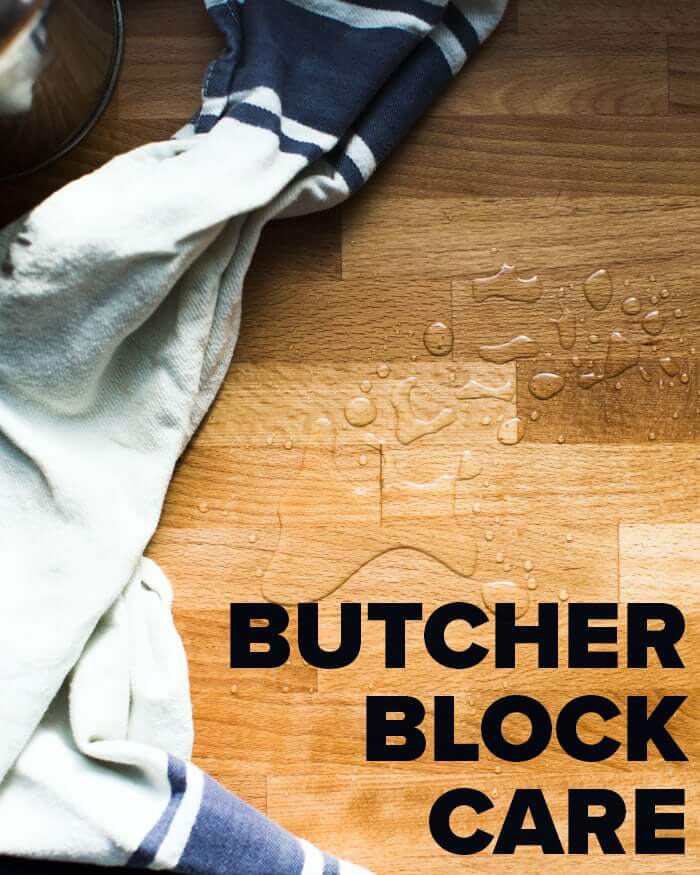
Can I use butcher block countertops as a cutting surface?
While butcher block countertops are durable, it’s best to use cutting boards to prevent deep scratches and gouges. Cutting directly on the countertops can lead to significant wear and tear, making maintenance more challenging. Using cutting boards helps to preserve the smooth, polished surface of the butcher block, ensuring it remains in good condition for years to come. Plus, cutting boards are easier to clean and replace if they become too worn.
How do I deal with scratches on my butcher block countertops?
Scratches are inevitable, but they can often be repaired. For minor scratches, sanding the area with fine-grit sandpaper in the direction of the wood grain can help smooth them out. After sanding, clean the area and apply mineral oil to restore the finish. For deeper scratches, you might need to use a wood filler before sanding and oiling. Regularly oiling the countertops can also help minimize the appearance of scratches by keeping the wood nourished and resilient.
What should I avoid doing to ensure the longevity of my butcher block countertops?
To ensure the longevity of butcher block countertops, avoid several key mistakes. Do not let water sit on the surface for extended periods, as this can cause swelling and warping. Avoid using harsh chemicals or abrasive cleaners that can damage the wood. Always use cutting boards to prevent deep scratches and gouges. Do not place hot pots and pans directly on the wood, as this can cause burn marks. Lastly, ensure regular oiling and maintenance to keep the wood hydrated and protected.
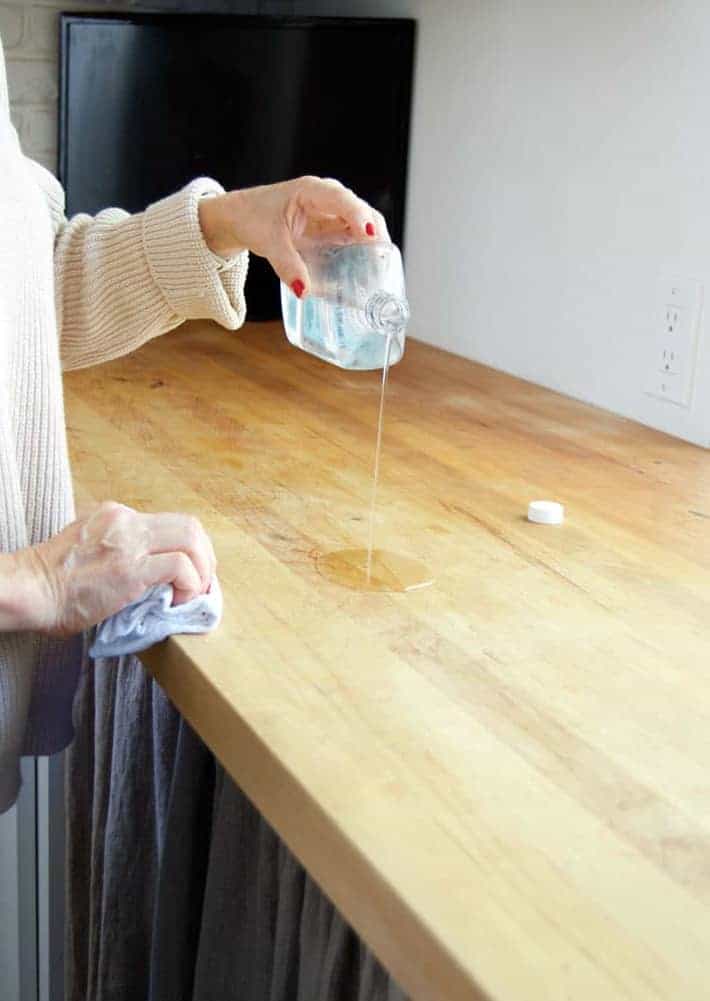
How to Care For Your Butcher Block Countertops
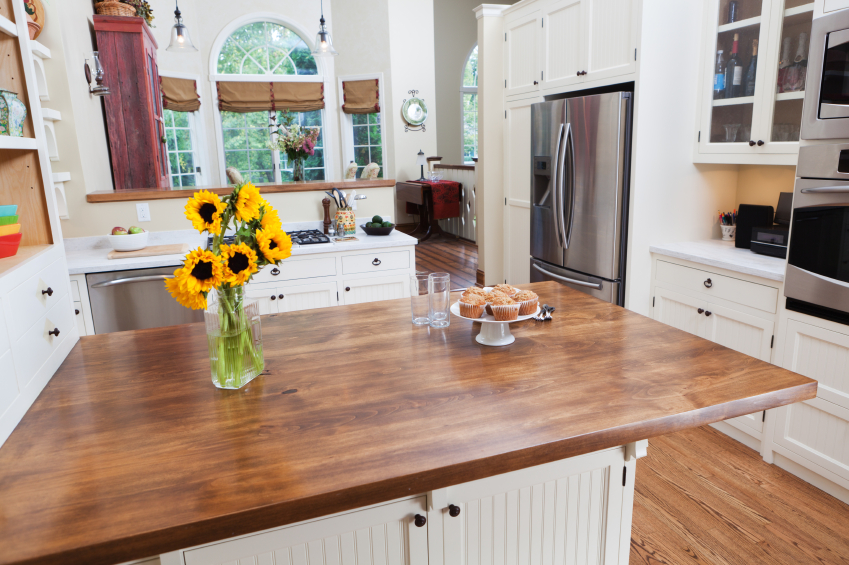
Sealing Butcher Block Countertops: Waterlox vs. Mineral Oil
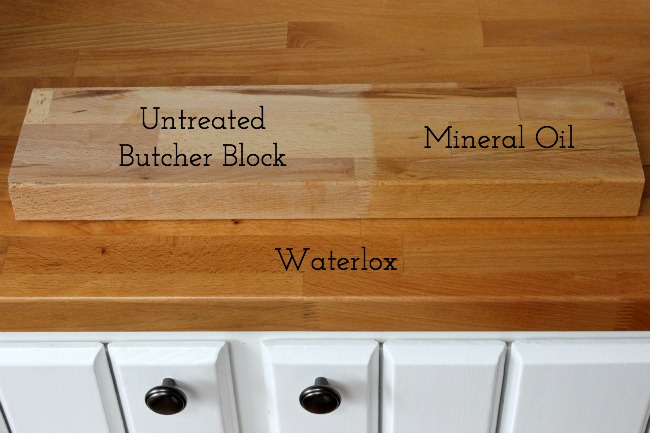
Related articles:
- Can You Paint Butcher Block Countertops
- Butcher Block Countertops With White Cabinets
- Pine Butcher Block Countertops
- Butcher Block Countertops Walnut
- Maple Butcher Block Countertops
- Care Of Butcher Block Countertop
- Butcher Block Countertops Maintenance
- Antique Butcher Block Countertops
- Butcher Block Countertop Sealing
- Wood Butcher Block Countertop